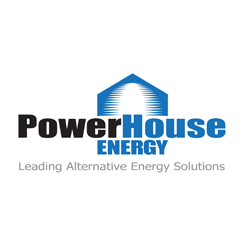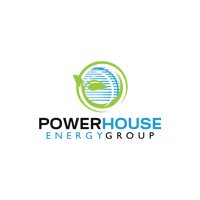PowerHouse Energy Group plc (LON: PHE), the UK technology company pioneering hydrogen production from waste plastic and used tyres, today announced its unaudited interim results for the six months ended 30 June 2018.
H1 2018 Highlights
Operational
Completion of Front-end Engineering and Design Program (FEED) for DMG® System
Initiation of planning and permitting process for Ellesmere Port site
Continued operation of G3 Process Demonstration facility and additional data acquisition
Augmenting of Commercial Operation/Business Development Team
Financial
Equity fundraisings totalling £2,088,434 which includes shares issued to settle the Hillgrove loan note and to consultants in lieu of services provided.
Post-period Highlights
Active engagement of Element Energy to assist with UK & EU Grant Funding Applications
Accelerated commercial activities by PHE and Waste2Tricity, Ltd for first DMG® facility
Engagement of third-party Engineering validation – process well underway and due for completion in the coming weeks.
Chairman’s Statement
Introduction
PowerHouse has made progress in the first half of 2018 on a number of fronts, the most significant of which is completion of the Front-end Engineering and Design (FEED) process for its generic DMG® System. This milestone was accomplished through the efforts of the design engineering team at EngSolve, the test engineering team at PowerHouse, and the application of the empirical data that had been acquired from the on-going operation of the G3-UHt Process Demonstrator at the Thornton Science Park.
Additionally, the Company was able to complete the retirement of the Hillgrove Convertible Loan Note (the Note) through the issuance and placement of the shares outstanding against the Note. This has allowed the Company to accelerate its technical and commercial aims, and freed the Company from the substantial overhang of shares thereby represented.
The principal activity of the Company is to continue the exploitation of the newly engineered and developed PHE Waste-to-Energy system, DMG®, and associated advances in its intellectual property and know-how, in order to achieve successful commercial roll-out of DMG®. The system’s thermal conversion process converts waste materials such as non-recyclable plastic, biomass, and other waste streams into a high-quality, clean, EcoSynthesis© gas composed primarily of hydrogen, methane, and carbon monoxide. The previously developed and constructed PHE G3-UHt Process Demonstration system continues to be operational at Thornton Science Park near Chester, UK.
We have created what we believe to be a distinct and sustainable business model with DMG® and the IP that underscores it: distributed waste elimination; distributed electrical generation; distributed hydrogen production, and the extraction of chemical precursors from heretofore wasted resources – quite literally, waste.
The Company continues to develop commercial interest in the DMG® System and is in advanced negotiations with selected parties regarding the deployment of our initial system and in ongoing discussions with a broader range of potential partners and customers for utilising our technology. We are confident that the completion of our first commercial system will precipitate significant demand for the DMG® System in multiple geographical regions.
PowerHouse no longer sees itself as simply a developer of Waste-to-Energy technology, but also as a pioneer in the nascent process of deriving hydrogen, and other chemical precursors, from waste. We are convinced that DMG® technologies will help fuel our future, cleanly, efficiently and profitably.
Our strategy
The Company’s long-term strategy is to utilise its intellectual, engineering, and operational know-how and to license its intellectual property, to assist in the building of sustainable and profitable waste eradication, energy recovery, and distributed electrical and hydrogen production operations utilising the Company’s proprietary thermal conversion platform technology (DMG®). This will be achieved by working in conjunction with a variety of third-party owner/operators, leading industry partners, and others including waste management companies, material recovery facilities, landfill operators, technology providers, and a suite of external project development partners.
Additionally, the Company will seek to exploit associated opportunities where the Board believes it can add significant value and contribute towards the success of the Company as a whole.
At present the Company’s principal assets are its G3-UHt process demonstrator, currently located at the University of Chester Thornton Science Park, the test data derived, and the Commercial Design materials developed during the on-going Engineering process.
As we enter the commercialisation phase for our proprietary DMG® technology platform, our strategy is to target licensing revenues to move PowerHouse towards becoming a profitable and sustainable business meeting the ever growing global demand for efficient elimination of unrecyclable plastic waste and end of use tyres, the production of clean energy, and the extraction of other useful resources from waste.
Developing our business model
The Company intends to further develop its DMG® process into a fully operational commercial unit capable of processing a nominal 25 tonnes per day of waste and deriving valuable resources such as EcoSynthesis Gas, hydrogen, distributed electricity, and other chemical precursors. It is expected that activities will commence in the UK in the near-term in partnership with Waste2tricity Ltd, an experienced waste-to-energy project development organisation.
The Company also continues the planning and permitting process related to the Peel Environmental site near Ellesmere Port and, furthermore, is concurrently evaluating a number of other potential sites for the roll-out and licensing of its initial DMG® technology.
Over the longer term the Company will look to exploit its proprietary know-how, technology developments, and other processes to develop economical, environmentally sound, and efficient solutions to capture even more physical and chemical energy from the growing waste-steam generated by our planet. Customers are being identified not just in the UK, but across the EU, and in other selected geographic territories.
Commercialisation
The commercialisation phase is now well underway and we are making positive progress by taking a customer-led approach, involving a combination of strategic alliances, commercial partnering and working directly with potential customers/licensors of our IP. Our flexible approach combined with the modular design of our DMG® System allows us to tailor our technology to meet the most specific of partner and customer requirements.
The generic Front End Engineering Design (FEED) Engineering is now complete, allowing initial safety design reviews and independent third party design reviews which have been initiated on schedule. Third party engineering verification is well underway with results expected in the coming weeks.
We are now focussing on specific applications of the DMG® technology and are in active negotiation and discussions with a number of “early-adopter” commercial customers for our IP. The fabrication, build, and commissioning of the first DMG® system is expected to be completed, depending on specific customer requirements, and adequate funding being in place, by the end of Q3 2019 with full commercial operation commencing soon thereafter.
We are also actively pursuing a number of grant applications, which if successful, will result in additional funding during 2019.
We note that the share price has fallen this year as we have been required to retire the Note and to raise cash for Company operations. However, we believe this to be a short-term situation for the Company and the Board is confident that third-party technical validation, the appointment of a partner for the fabrication and construction of the first DMG® facility, and, of course, the first contracted commercial order utilising our proprietary DMG® technology, will drive what the Board believes to be the considerable value inherent in PowerHouse.
Outlook
We believe we have the right strategy in place to deliver substantive growth over the medium to longer-term and to deliver sustainable shareholder value as the commercialisation strategy for our proprietary DMG® technology platform targets revenues to move PowerHouse towards becoming a profitable business.
The Company is currently pre-revenue and is reliant on being able to raise further funds to continue its development as outlined in the going concern note 1.2 of these interim statements.
The Board appreciates the continued support of our shareholders and is making every effort to repay your confidence in the Company and its future.


